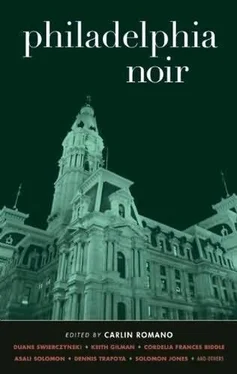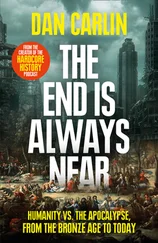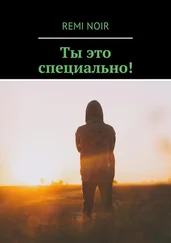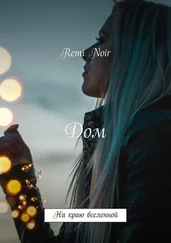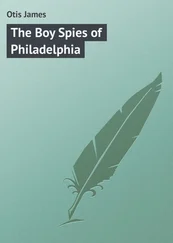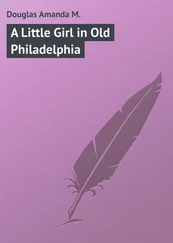“He keeps slaves on his Southern plantation-which doubtless you’re aware. The crimes perpetrated upon them are demonic: floggings until their flesh comes away in bloody strips, children snatched from their mothers and sold-”
“You tell ’em, sister!” a female audience member yodeled at the actress delivering the lines. Other voices sprang into action, attempting to shush the interruption.
“I’ve a right to my opinion,” the provocateur shot back. Naturally, this was met with more orders to cease and desist.
“Let the gal finish, why don’tcha? The wife and I didn’t come to Philly to listen to you.”
“This is a free country, bro. In case you haven’t heard.”
“Just shut up, okay?”
“You gonna make me? You and the wife ? Doesn’t she have a name?”
“What’s that crack supposed ta mean?”
“Whaddaya think?”
“Hey, c’mon, you two. Take it elsewhere.”
As additional members of the crowd joined the enlightening argument and then settled into a tenuous peace, they-and I-pressed closer to the improvised arena. I couldn’t see the performers yet, but the initial actress’s vocal quality and range was impressive, a professionally trained instrument that could hit the back of any theater. I wondered what she was doing hustling tourists for tips.
“This isn’t merely abolitionist fervor. My entire life is affected by his shameful philosophy.” She paused to let the dramatic tension build. As I mentioned, she knew her stuff. “For I must also consider the mulatto bastards his seed has produced-”
A gasp from two protective parents arose. The crowd opened to let them and their children scurry through, the boy and girl lagging behind, eyes glued to the ground lest anyone assume the totally dorky choice to vamoose was theirs.
“I thought these dramas were supposed to be clean and wholesome,” the mother muttered while the son, who looked to be about eight, demanded: “What’s seed? It’s not like grass stuff, is it? I know what a bastard is.” In the silence, his falsetto voice boomed.
“Hush, Anthony, we’ll talk about it later-”
“That’s what you always say, Mom!”
“At least the play’s educational,” the father offered with a wary chuckle. “That’s what we wanted, wasn’t it? American history made fun-”
“Paul, how can you?” Having registered her disapproval, Mom spun away from Dad and bent down to her son. “Don’t use the word bastard , honey.”
“Dad does-”
“What your father says and does isn’t always suitable. You may as well learn that right now.”
“Like when he-”
“That’s enough, Junior.” This time it was Dad who did the scolding. He was now carrying the boy’s sister, a yellowhaired girl of four or five who clung to his neck and stuck out her tongue at her earthbound brother. As the father held his daughter aloft, a grin of false indulgence spread across his face. It didn’t begin to conceal his dismay at being the focal point of a bunch of tittering strangers.
“But you do, Dad. When we watch the Phillies, you-”
“Anthony, that’s enough.”
“Bastard, bastard,” the little girl sang out.
“Look what you made your sister do, Junior. I want an apology. Now.”
“What do you expect, Paul, if you set the kind of examp-?”
“Drop it, Sheila.”
“I’m not allowed to tell the truth, is that it?”
“Now. Drop it now.”
With the audience torn between eavesdropping on a family meltdown and watching professional performers, a space became free for me to slip forward (dog in tow) until the actors were in sight. Two women and a man, dressed not in homespun and breeches and tricorne hats but in full Victorian regalia: the women draped in silks and expensive paisley shawls, the man in a fitted coat and tall beaver hat. He had his back to me; the women were also turned away, their faces concealed by their bonnets’ wide beribboned brims. All three might as well have stepped from the fashion plates in Godey’s Lady’s Book , the period’s answer to an amalgam of Cosmo and Redbook . I shouldn’t have been surprised at their outfits; reenactors are obsessive people. They don corsets and crinolines, tight wool trousers and tighter cravats, whether the heat index measures a hundred degrees Fahrenheit or sleet is slinging itself sideways. In my opinion that’s odd.
“All the while, he struts around the metropolis, esteemed by his peers as if the gentleman farmer from the Carolinas were unconnected to the God-fearing churchman dwelling in Society Hill,” Actress Number One continued. Her tone had grown more strident; her posture (or what I could see within her voluminous clothes) was rigid. “How can this be? Wasn’t the transatlantic slave trade abolished in 1808? Then why does the government allow this evil to persist?”
The argument hit a chord with the audience. There were cheers; several people clapped. It seemed a likely time for an educational interlude, a Q &A during which the cast traditionally breaks character and engages in a group discussion, encouraging onlookers to air their views on whatever political message is up for debate. I took this as a cue to vacate my spot. Besides, I figured the dog was growing bored standing in one place while a lot of human types made noises that had nothing to do with food. However, the actress who’d taken the lead wasn’t about to relinquish her soapbox. I opted to linger a bit longer.
“It’s not merely the Southerners who are to blame. Here in our own city the textile mills supply fabric, so-called cot-tonade , for those despicable slave owners-”
“Haven’t I experienced that abominable situation myself?” the second actress interjected, her tone also incensed, although her interpretation was subtler than Actress One. “And our calico is traded for human cargo along Africa’s Niger River. But, I repeat, what’s to be done in your case? Your husband’s within his rights. As demonic as it-”
“Within his rights? Oh, where’s your sense of decency and equality? What about the burning of Pennsylvania Hall during the Anti-Slavery Convention, or the rioting that ensued? Entire blocks of houses set on fire. Men and women dying in the conflagration and their homes reduced to ashes. And this the City of Brotherly Love!”
Louder applause followed the bellicose speech. A few people whistled and stamped, their shoes drumming a tattoo against the stones. The instructive vignette was taking on the rowdy passions of an Eagles game. I began worrying for my dog’s safety. The team’s reputation as being pooch-friendly is a sullied one, but that’s another story.
“What you say is true,” the male actor picked up the cue. “Now we face riots over laborers’ rights, which increase the civil unrest. But men and women-and children-must be paid fairly for their work.” There was authority in his delivery, and sorrow that sounded genuine. I was sorry I couldn’t see his expression. I was also impressed at the amount of research the playwright had done. I know this period well. The facts were solid.
“But what about your husband?” Actress Number Two persisted. I watched her lay a gloved hand on the man’s sleeve, an indication that the scene was about to shift focus. Attentive though the audience was, the encroaching dusk, combined with the siren call of Geno’s Steaks, would soon take its toll. It was time to address another topic. “I assume you haven’t mentioned your critiques to him.”
“Oh, I have. Naturally, he repudiates my arguments. No matter. I intend to divorce him, and desert his bed and wicked habits forever. Indeed, I should never have wed him, but I think you know that well enough.”
Читать дальше
